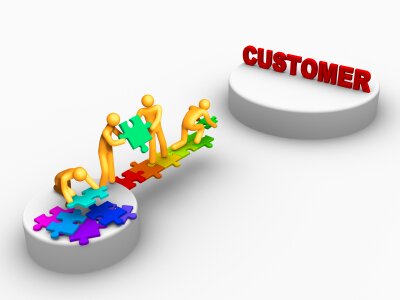Weber Media Partners | Impressions Through Media
Conversational Marketing in the Age of Social Media
- Home
- About This Blog
- Contact
- Sitemap
Archive for the ‘social influence’ Category
How Social Media Enabled Egypt’s Revolution: Part Three
Author: Theresa Grenier26 Jul
 In the last of our three-part series on the role of social media in Egypt’s ongoing revolution, we speak directly with Amr Abouelleil, who is one of the growing number of international Egyptian Youth Movement members.
In the last of our three-part series on the role of social media in Egypt’s ongoing revolution, we speak directly with Amr Abouelleil, who is one of the growing number of international Egyptian Youth Movement members.
Abouelleil is a 36 year-old Egyptian-American writer and bioinformatics analyst living in Massachusetts with his family. He lived his early life in Egypt, and returns every year to visit family, including a female cousin who is active in the revolution. His most recent trip was this past April, where he witnessed the effects of Egypt’s revolutionary activity first-hand.
His take: social media has been the cornerstone of communications during the revolution. Without social media, access to factual information would be limited, and more than likely colored by government spin and propaganda. It has enabled international supporters like Abouelleil to connect first-hand with other Egyptians, and to reach out to a broader audience to both gain support for the revolution and address the misinformation that abounds in traditional media and on the internet.
We hope you find yourself as inspired as we have been by the power of social media, and the strength and passion of those using it to build a better future for their country.
- 0 Comments
- Filed under: blogging, egypt, facebook, social influence, social media marketing, social media revolution, twitter, viral video, youtube
How Social Media Enabled Egypt’s Revolution: Part Two
Author: Theresa Grenier1 Jul
Two Can Play at this Game: World Governments’ Responses to Social Media as a Revolutionary Tool
 In the first part of this series, we explored how social media enabled and facilitated Egypt and Tunisia’s revolutions. By using Facebook and Twitter to broadcast their beliefs, find like-minded individuals the world over, and organize protests in near real-time, the revolutionaries were able to stay one step ahead of their governments. But now, it seems, the governments are catching up.
In the first part of this series, we explored how social media enabled and facilitated Egypt and Tunisia’s revolutions. By using Facebook and Twitter to broadcast their beliefs, find like-minded individuals the world over, and organize protests in near real-time, the revolutionaries were able to stay one step ahead of their governments. But now, it seems, the governments are catching up.
In Egypt, segments of the government and army are now on Facebook, using it as a means to spread their own propaganda and to keep an eye on known activist communities. At one point during the revolution, the Egyptian government even shut down internet access, fully aware of the threat it posed to the government. Amr Abouelleil, an Egyptian-American bioinformatics analyst and writer who is actively involved with the Egyptian Youth Movement at the heart of the revolution, says the government was aware that without the internet, people would have to turn to state television (which is government-censored) for their news. The government used this opportunity to up their ante, broadcasting pro-government programming to the unwired masses, which in many cases, appeared to work. “The government got some people to change their tune in just a matter of days,” Abouelleil says. “It brainwashed them to go back on Facebook in the government’s favor instead.”
Egypt is not the only government in fear of the power social media and the internet provides its people; when Google reportedly foiled an alleged Chinese attempt at stealing the passwords to hundreds of Google accounts, including those of government officials, Chinese human rights activists, and journalists. The Chinese government has since denied involvement, but is well known for their censorship of the internet and television. Whether or not the government is responsible for the hacking attempt, it’s safe to say that they are well aware of the power of the internet and social media, and doing all they can to control it.
Government reactions to the use of Google and social media have been so extreme in recent months that Google Executive Chairman Eric Schmidt has said he fears for the safety of Google employees in certain parts of the world. “There are countries where it is illegal to do things that Google encourages. In those countries, there is a real possibility of (employees) being put in prison for reasons which are not their fault,” Schmidt told attendees of Google’s Dublin summit on militant violence this past Monday, June 27.
A prime example of this is Wael Ghonim, the Egyptian Google executive who is now one of TIME magazine’s 100 most influential people of 2011. Ghonim was held captive by the Egyptian government for eleven days in early 2011 due to his involvement in using Facebook to organize protests via a page called “,” which exposed and raised awareness of the military’s cruel and inhumane murder of Khaled Saeed.
How Social Media Enabled Egypt’s Revolution: Part One
Author: Theresa Grenier22 Jun
 For hundreds of years now, the printed word has given a voice to the people. It has enabled repressed religious groups to establish their freedom and independence, and allowed fledgling countries to organize the support and manpower needed to break free from their oppressive overlords. There are centuries of evidence that the pen is, indeed, “mightier than the sword;” but in our age of technology, it appears that the Tweet may be mightier than the pen.
For hundreds of years now, the printed word has given a voice to the people. It has enabled repressed religious groups to establish their freedom and independence, and allowed fledgling countries to organize the support and manpower needed to break free from their oppressive overlords. There are centuries of evidence that the pen is, indeed, “mightier than the sword;” but in our age of technology, it appears that the Tweet may be mightier than the pen.
We all know by now about the recent social-media fueled upheavals in Egypt and Tunisia; protestors took to the web to voice their views and organize protests, acts which ultimately led to a successful revolution. Social media has given people a larger, louder voice than ever before. It allows them to reach the like-minded in both their own country and across the world. And perhaps more importantly, they are able to do it INSTANTLY. Revolutions that would have taken 10, 20, 30 years in the days before social media can now occur in that many months. Protests that would have taken weeks or months to organize can now happen in hours.
Let’s take a look at historical past revolutions. The Protestant Reformation, for example, would never have been made possible without the invention of the printing press. Johannes Gutenberg’s invention allowed Reformation leader Martin Luther to write and publish his beliefs prolifically, without Church censorship, and to distribute them to his followers and like-minded individuals, thus thrusting the reformation to the forefront of the public consciousness. Within 6 years, half of the printed works in Germany were written by Luther.
Then there is the American Revolution. Without Benjamin Franklin’s postal service, would missives have had such wide-spread reach? An organized means of distributing written information was essential to the fledgling colonies breaking free of British rule, and again in establishing the United States as a nation.
So we can see that the printed word has long played a role in disseminating information about dissidence and revolution to the people of the world and inciting the public to action. The difference between then and now is that now the people have the ability to instantly act on that information and reach a global audience.
It is important to note that, contrary to what the media and some extreme social media advocates are saying, the recent uprisings were not, in fact, “caused” by social media. They were caused by political unrest, government and military abuses of power, and poor treatment of a country’s citizens, and those citizens being unwilling to stand for it. The revolutions were, however, enabled and facilitated by social media, and quite possibly might not have been successful without it.
Stay tuned in the upcoming weeks as we post parts two and three in this series, where we’ll explore the government’s reaction to social media’s involvement in the Egyptian revolution, and speak with an Egyptian-American who has been active in using social media to advance the revolution from his home in the United States. And as always, we welcome your opinions and comments on this post and the topics it covers!
*UPDATE*
Part 2 is now up. Two Can Play at this Game: World Governments’ Responses to Social Media as a Revolutionary Tool
Image: Gigi Ibrahim via Flickr
- 1 Comment
- Filed under: facebook, social influence, social media marketing, twitter, viral video, youtube
Businesses Benefit from Strategic Social Media Programs
Author: Catherine Weber3 Nov
 While social networking began as a consumer activity, it has become a crucial component of most business marketing strategies as it allows companies to reach highly targeted audiences with custom messaging to build brand awareness and establish a relationship with the customer who now expect companies to be reachable and accountable.
While social networking began as a consumer activity, it has become a crucial component of most business marketing strategies as it allows companies to reach highly targeted audiences with custom messaging to build brand awareness and establish a relationship with the customer who now expect companies to be reachable and accountable.
Business Benefits
Businesses are now regularly using tools such as Twitter, YouTube, Facebook and LinkedIn for hiring, customer support, product development, brand recognition, and, of course, client acquisition and retention. Social media has another benefit: the cost of acquiring customers is significantly lower than placing ads, and creates a lasting relationship.
The benefits of a quality social media marketing program include:
- Transparent, authentic feedback from your audience
- Integrates well with conventional marketing programs
- Reach highly-targeted audiences
- Improves search engines positioning
- Lower cost than advertising
- More long term and wider impact than conventional public relations
Listen first, Act second
Buyers look to objective internet sources to compare business products and services including existing customers who are more than willing to share their experience with these products. Companies can’t control the chatter, but they can learn what customers want.
Brands such as Comcast have made major strides in customer service by listening on Twitter. When their brand is mentioned, they know. When someone has a problem, they help them within minutes. They follow the first rule of social media: listen first, act second. Maintaining a regular monitoring program helps to understand customer sentiment and how it changes as you implement online programs.
Defining Success
Measuring the success of a social media campaign is possible only if you define your targets in advance. Whether they include increased traffic, website conversions or leads, you must have clear targets for successful campaigns, at short-term and long-term time intervals. A few examples of what success might look like include:
- Gaining a better understanding of your customers
- Increase brand exposure in ways which were not possible before
- Reducing costs for achieving the same targets using other marketing tactics
- Increase sales and conversions
Some great resources to compliment this blog post:
Social Commerce, Social Media Today, November 2, 2010
Content for People, Not Robots, Impressions Through Media, September 18, 2010
- 5 Comments
- Filed under: business, social influence, social media marketing, social media monitoring, web 2.0
Do you like what I like? The power of social influence.
Author: Catherine Weber8 Aug
Twenty years ago, our friend Dan did meticulous research on lawnmowers, comparing price and quality, reading Consumer Reports, and talking to various salesmen, asking questions at local stores. Once he decided which brand and model to buy, we piggybacked on his research and bought the same one because we knew he did a thorough evaluation.
While influence is nothing new, the many ways we’re influenced is, in more and more ways. If you consider all of the consumer buying decisions we make: where we shop and dine out, which movies we see and what music we listen to, we have always made decisions with influence from our family, our friends, and, even perfect strangers.
 Now, in addition to in-person influence, we are often influenced by a virtual community made up of people that we know, and their friends, many who post their opinions on , by liking a page, or on Amazon, by reviewing a product, or on Yelp, by reviewing a restaurant or local business. (Yelp, by the way, got in trouble with site users for manipulating reviews in favor of advertisers and has changed their policy based on widespread negative feedback.)
Now, in addition to in-person influence, we are often influenced by a virtual community made up of people that we know, and their friends, many who post their opinions on , by liking a page, or on Amazon, by reviewing a product, or on Yelp, by reviewing a restaurant or local business. (Yelp, by the way, got in trouble with site users for manipulating reviews in favor of advertisers and has changed their policy based on widespread negative feedback.)
![]() That’s why has been making it easy for companies to incorporate the Like widget on their websites and blogs. Everything you “like” is cataloged for all of your Facebook friends to see.
That’s why has been making it easy for companies to incorporate the Like widget on their websites and blogs. Everything you “like” is cataloged for all of your Facebook friends to see.
- 4 Comments
- Filed under: social influence, social media marketing
- Subscribe To Feed (RSS)
- Comments (RSS)
- Subscribe via Email




Recent Comments
Do businesses need both?